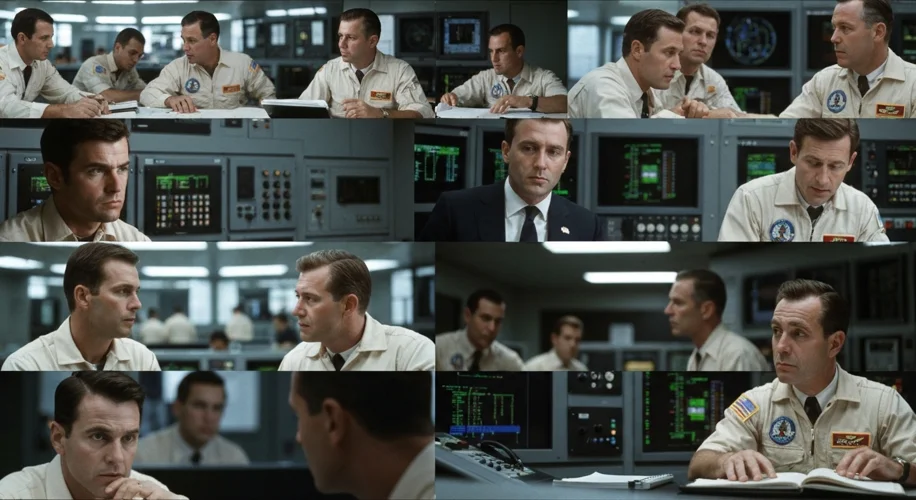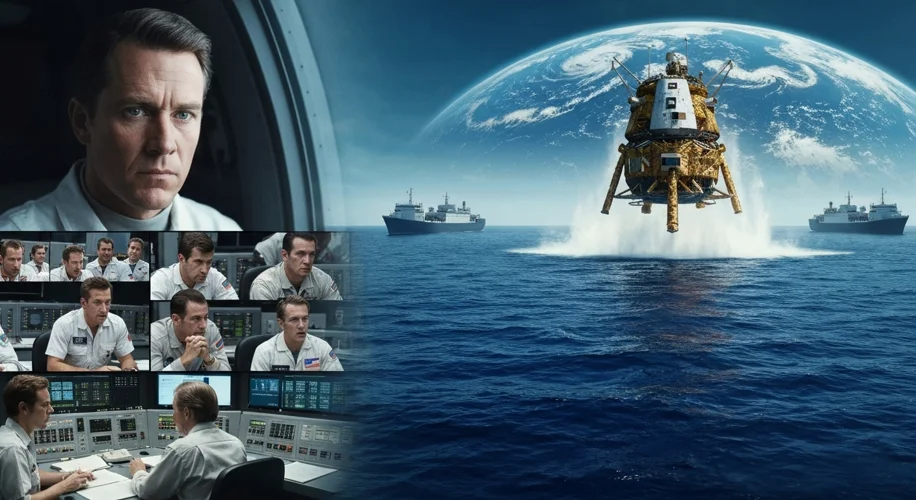The silence of space, often described as profound and awe-inspiring, can also be the most terrifying adversary. For Jim Lovell, commander of Apollo 13, that silence, punctuated by the alarming crackle of a failing oxygen tank, would define a mission that captivated the world and etched his name into the annals of human resilience. On this day, August 10, 2025, the world bids farewell to Lovell, who passed away at the age of 97, leaving behind a legacy of leadership tested in the crucible of an unforgiving cosmos.
Born James Arthur Lovell Jr. on March 25, 1928, in Cleveland, Ohio, Lovell’s path to the stars was paved with a dedication to service and a thirst for adventure. A graduate of the U.S. Naval Academy, he served as a Marine Corps pilot and later as a test pilot. His early spaceflight experiences were equally distinguished. He flew as a command module pilot on Gemini 7 and later commanded Apollo 8, the mission that first carried humans into orbit around the Moon in December 1968. These missions honed his skills and prepared him for the ultimate challenge.
The year was 1970. The world watched with bated breath as Apollo 13, carrying Lovell, Jack Swigert, and Fred Haise, embarked on its journey to the Moon. The mission was intended to be a triumphant lunar landing, a continuation of humanity’s bold steps beyond Earth. However, on April 13, just two days into the flight, disaster struck. An oxygen tank in the Service Module exploded, crippling the spacecraft and jeopardizing the lives of the three astronauts.

The famous words, “Houston, we’ve had a problem,” transmitted from orbit, sent a shiver down the spines of millions. The dream of a lunar landing shattered, replaced by a desperate fight for survival. Lovell, the seasoned commander, immediately grasped the gravity of the situation. With calm authority, he, along with his crewmates and the tireless support of Mission Control in Houston, transformed the crippled lunar module, Aquarius, into a makeshift lifeboat. They faced unimaginable challenges: limited power, freezing temperatures, rationing of water and air, and the psychological toll of being stranded millions of miles from home.
Lovell’s leadership during those harrowing 76 hours was nothing short of extraordinary. He maintained a steady hand, making critical decisions under immense pressure. His focus was not on the lost lunar surface but on the survival of his crew and their safe return to Earth. He inspired confidence, not through grand pronouncements, but through his quiet competence and unwavering resolve. The world watched, united in a shared anxiety, as engineers in Houston devised ingenious solutions, like the infamous square-peg-in-a-round-hole method to adapt the lunar module’s CO2 scrubbers to fit the command module. The astronauts, meanwhile, endured the physical and mental strain of living in cramped quarters, powered by ingenuity and sheer will.
The journey back was fraught with peril. Every maneuver, every system check was critical. The crew experienced disorientation and physical distress as they navigated the return trajectory. Finally, on April 17, 1970, Apollo 13 splashed down safely in the Pacific Ocean, a testament to human ingenuity, teamwork, and the indomitable spirit that drives us to explore and, when necessary, to endure.

The Apollo 13 mission, though a failure in its primary objective, became a resounding success in the eyes of many. It demonstrated the critical importance of problem-solving, the power of international cooperation (even implicitly), and the sheer grit of the human spirit when pushed to its limits. Lovell, as the commander who guided his crew through the crisis, became a symbol of this resilience. His calm demeanor, his ability to inspire trust, and his unwavering focus on bringing his crew home solidified his place as one of history’s great leaders.

Beyond the technical marvels and the nail-biting moments, the Apollo 13 saga, and Jim Lovell’s role in it, offered a profound lesson. It reminded humanity that even in the face of overwhelming odds, the determination to survive and the capacity for innovation can triumph. Lovell’s life, marked by his courage in the face of extreme adversity, serves as a beacon, illuminating the extraordinary potential that lies within us when we are called upon to face the unknown. His passing marks the end of an era, but the echo of his leadership on that perilous journey continues to resonate, inspiring generations to reach for the stars, even when the path is anything but certain.

